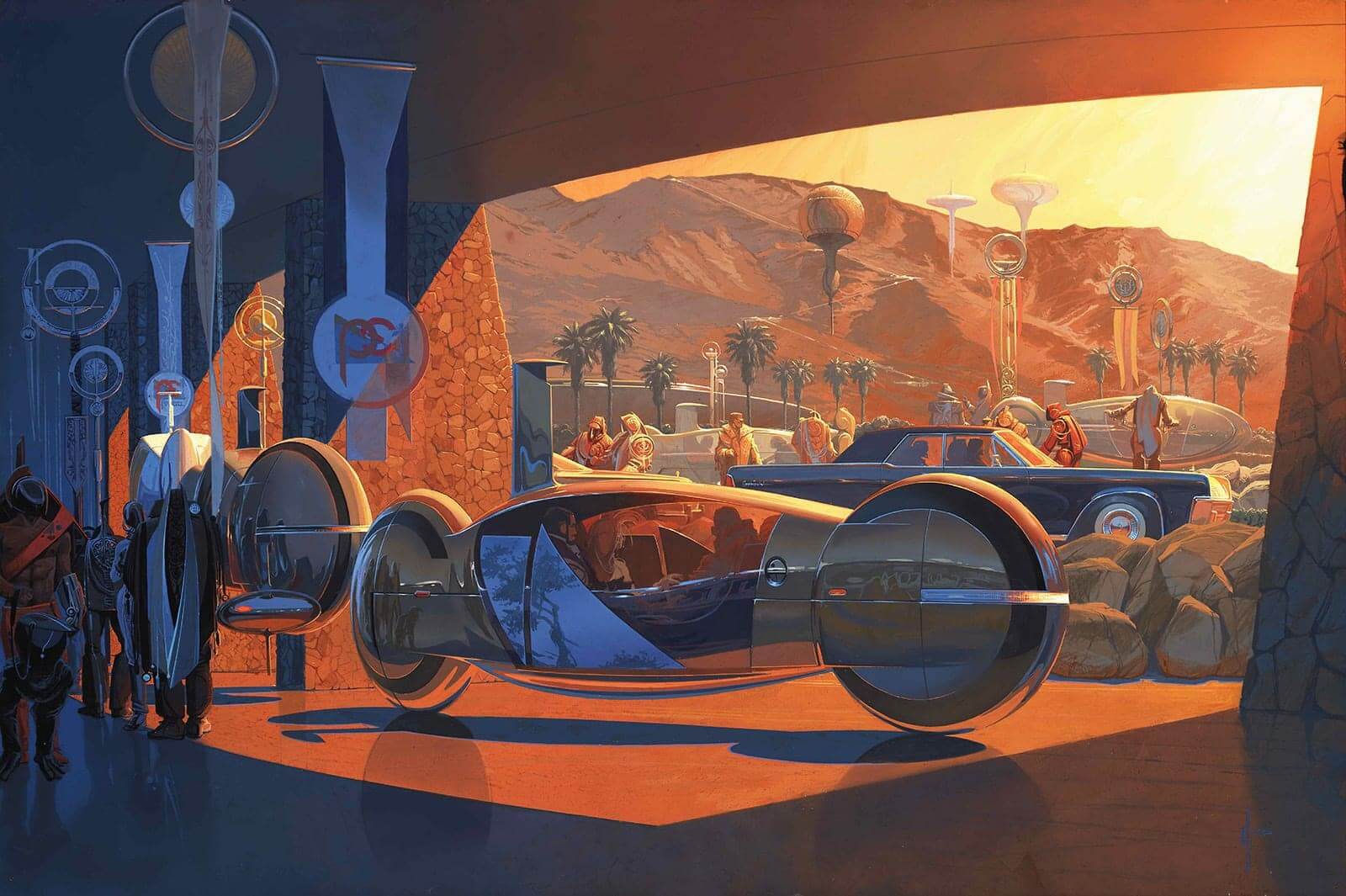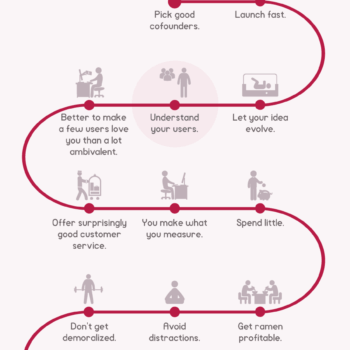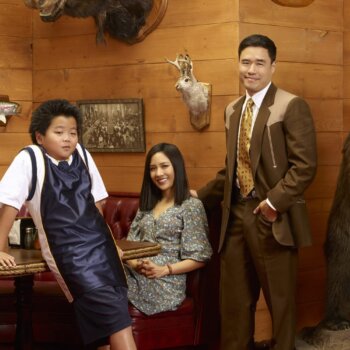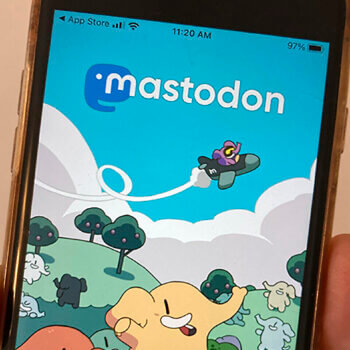For a long time, I was worried about the future. History repeats itself, so I should have assumed that technology would displace jobs but also create enough new jobs and wealth so that essentially everyone who wanted a job could still have one. That’s what has happened in the past, so shouldn’t it happen in the future? That’s what my good economics oriented friend told me. For the longest time I couldn’t accept this conclusion because I couldn’t wrap my head around all of the jobs that would be displaced. And I couldn’t figure out (though I thought many times and quite hard about) what most humans would be doing in a highly-automated, artificial intelligence (AI) infused world. Over the past few days, this has changed. I now feel as though I can see a glimpse of the future of jobs and the economy. Here’s a glimpse of that glimpse.
While worrying about a near-jobless future, I feared that a lack of jobs would create an easy opening for many governments around the world to implement Universal Basic Income (UBI) schemes where government raises taxes and everyone, from rich to poor, would get a small monthly sum, just enough that anybody should be able to scrape by on the money. I’m a libertarian, so I hoped that some private organization(s) or some new private currency such as the Grantcoin could fill a need for the Universal Basic Income instead of the government. The problem with government-run UBI, or any government-run welfare, is that government forces (some would say steals) money/resources from some people’s pockets and puts it into other people’s pockets.
I now think that a Universal Basic Income will not be needed. In fact, just like the first industrial revolution increased wealth and perhaps made handouts to the poor less necessary, I’m hopeful that the artificial intelligence revolution will increase wealth, make handouts less necessary, and may even increase humane, fun work.
The Prediction
Before the epiphany, early on in thinking about this I thought that Facebook would start paying people to browse on Facebook to encourage more browsing and get more ad dollars for themselves. Now there’s the Bravebrowser that is trying to do a similar thing across the entire internet. I still think this could be impactful, but I don’t think this sort of paid browsing will be the main income for most people. People want to express their creativity more than this.
The AI/robot-driven future will not be jobless, but the typical hierarchies that we are so used to today may be radically changed. My prediction is that the highest level, white collar jobs of today will be undermined by nearly any human with decent judgement in a particular field. And the traditional “capital”, such as stock in Coke, Amazon, IBM, Google, Microsoft, or Berkshire Hathaway, will become less important. This capital that we currently associate with generating wealth and creating the mega-rich, such as Warren Buffet, Bill Gates, and Jeff Bezos, will become less important because capital will become so abundant through the implementation of robotics and AI that it will be much less valuable. Capital will be up against a plethora of startups that can open up shop and legitimately compete with minimal capital and minimal expertise in days or weeks, not years.
In other words, our society will be so capital-rich that capital as we know it will no longer be a great determinant of wealth. In fact, in many cases capital might become a liability. Think of the movie WALL-E, and how Earth was overrun with so much stuff that all of the people needed to leave. People such as doctors will largely lose their favored status and income, and billionaires will lose much of their wealth if they try to hang on to worthless capital.
How valuable will Boeing be if half of the people on Earth can print a small, fast, personal, self-flying aircraft in their home or at the local 3D printer for today’s cost of a plane ticket? Or how many restaurants will there be when you can get any food you could ever want synthesized in your own home?
Our Creative Future
How can this be? I’d like to start with the idea that our typical top earners and producers of today will no longer have an advantage through education, skill, or status. Doctors, lawyers, movie score composers, and Michelin Star chefs will no longer have an advantage over other, less trained people who have an enthusiasm for a particular field. The old guard may even be at a disadvantage as they try to hang on to their old ways. This will all come about because of advances in AI, robotics, and the synthesization of physical stuff, some of which are already taking place.
I believe that humans will come alongside these technologies and the combined force of human plus technology will be stronger than the strongest human or technology alone. This is explored in a May interview of chess champion Garry Kasparov by Elena Holodny:
Kasparov [speaking of chess, where AI technology now routinely beats the best humans]: … But still, if you bring human-plus-machine versus the most powerful machine, the former combination will win because human advice in this very special situation could be vital.
Holodny: It’s interesting because that’s true of other industries too. In neuroradiology, a human is less accurate than a machine, but a human and a machine are more accurate than a machine.
Kasparov: Yes, that exactly. A machine helps us to annihilate our weaknesses. We don’t have a steady hand. We can lose all vigilance. We can be distracted by something that is not that relevant. But we have intuition. We can feel certain things. And with a machine you can check whether it’s right or wrong. That’s why by bringing [the two] together, you create a very, very powerful combination.
Now, what is the most important element of this combination? It’s an interface. Let me stick with chess, but I’m sure you can look for other examples. [Sometimes] you have a relatively weak player, not a top player, because she or he could be a better operator. Because with the machine it’s very important to help the machine, rather than trying to play on your own. So you don’t need too many of your ideas. Yeah, you have to look, but still, if you have a powerful interface, especially if you deal with more than one computer; if you start bringing them together and checking different lines, [then] the operator has an advantage — a good operator — over a very strong player. Because at the end of the day, all that’s needed is human skills to maximize the machine’s output, rather than great human understanding to be assisted by the machine.
This interplay of human and machine is what I see bringing us toward a new, jobful future. Before, I mentioned doctors, lawyers, movie score composers, and Michelin Star chefs.
- Doctors may encounter one hundred times the current competition from nurses and others who are now empowered by an artificial intelligence which can diagnose a problem and prescribe a treatment with better effectiveness and efficiency than the single best doctor or lone artificial intelligence.
- Lawyers may see hundred-fold competition from paralegals empowered by AI.
- Traditional insurance like Buffet’s GEICO and State Farm are already getting a run for their money from an AI and bot-infused startup called Lemonade.
- Movie score composers could be displaced by a musically inclined AI wielded by teens who know how to direct it to the next culture-pleasing wave of new music. The AI can create perfect, beautiful music, but the human has the ear and taste to know and direct the AI to what is most enjoyable to other humans.
- Michelin Star chefs will be up against every person in their own home with a food synthesizer coupled with an AI that comes up with a ton of excellent flavor and texture options for the user. The user tries to create many of their own recipes, picks the best, and publishes the “recipe” on Facebook for the world to try with their own in-home synthesizers. In the link below there’s a fun video showing an amateur and professional chef, Ming Tsai, already interacting with an AI to come up with and cook a recipe thanks to IBM’s Chef Watson.
- Children in their homes will be competing against people with a Masters or PhD in food science. They’ll compete with their parents’ synthesizers. They simply find a great new flavor and publish it on a monetization platform for the world to try: one where they can make a decent income if the gum, candy, or potato chip flavor happens to go viral or they’re consistently launching new formulas.
I could go on and on with the creative potential of mankind coupled with AI and other technologies. Think about some areas that could be impacted by this fusion of abilities: scientific discoveries, technological advances, space exploration, and ocean exploration; even conservation, linguistics, and the humanities could be turned upside down. There may no longer be any bad writers… me included.
The professionals of our age, the doctors and lawyers, will lose their edge. Even if they adopt AI, someone without a degree but a better knack for using the AI can beat the degreed at their own game. This means lower wages for professionals, but many more professionals without a degree.
While we will lose (and currently are losing) millions of jobs in retail, such as cashiers and salespeople, and millions more in trucking, driving, manufacturing, etc. — we will gain millions of jobs in the professional industries. Nearly anyone with a passion for a particular vocation will be competitive at the most creative, high-level positions of that vocation: surgery, food chemistry, graphic design, law… There will also be jobs where people and AIs are creating the AI to augment the creative human capacity of each particular industry, but I believe most jobs will be creative at the less abstract level, such as in art, medicine, chemistry, and entrepreneurship.
If you have a great business or product idea, there will be firms with AI that can help you spin up the business or idea in very little time and with very little capital. Or perhaps you can make money simply by telling the idea to someone else, or by telling the whole world. That someone else may go on to make a business out of your idea.
I hope that ideas are more valuable in the future. Simply coming up with a great idea could get money for you (check out my startup which attempted to do this).
Our Capital-Rich Future
There will be so much capital in the future that capital itself will be very cheap. It’s a matter of supply and demand: once supply goes up much higher than demand, prices will plummet. I think this will happen when we have robots building robots building the robots that can ultimately create anything we want and when we have AI-run machines getting almost any raw material we could desire in abundance.
The owners of capital, the Warren Buffets of the world, will see the value of their stocks plummet as physical things are essentially demonetized. If gold is mined from asteroids, it could see a severe drop in price. It will only be ideas and non-physical stuff that will have any significant value, because while they can be infinite in theory, they are in reality limited, either through algorithms, government, or through the confines of our imaginations.
The professionals will no longer make more than the average man. So we will see a great flattening: just as the current generation has been characterized by a great increase in income inequality, perhaps the near-unstoppable force of technological progress will create a great increase in income equality. Our only limit to our potential will be our willingness and ability to sit down with an AI and dream up the future. And since there are so many varied interests and so many people, and there will be so much physical wealth, there will be heavy competition: most will find their niche and make about as much as the next guy. Those who can’t make enough will be lifted up by those making an overabundance.
The AI researchers of this world have already shown a strong bent towards open source software and sharing their findings. This means that the most crucial flattener, AI, should soon be in the hands of the masses.
In a world where any human who wants a job has a fun, fulfilling, creative, human job, and where abundant material possessions are available for most of humanity, what could go wrong? Well, government could try to hold on to power and act as if the existence of government is necessary at every chance it gets. It might try to implement an unnecessary UBI, or worse, continue or expand any of its current “welfare” schemes. People will still be greedy, jealous, and prone to lying, cheating, and stealing. But overall the physical world should be much better.
What we really need is a greater connection with our creator, the God of the universe. He is the only one who gives ultimate meaning, value, and purpose to our lives.
___________________________________________
About the Author
This article was written by Eric Martin of HackerNoon. See more.





























